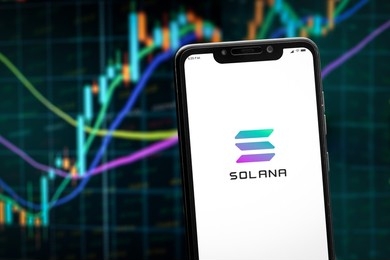The Solana Foundation, a non-profit organization dedicated to decentralization, adoption, and security on the Solana network, has launched token extensions.
Solana Token Extensions Gains Traction
According to a January 24 announcement, token extensions provide developers, enterprises, financial institutions, and Solana-native development teams with a comprehensive suite of turnkey solutions for advanced token functionality. Anatoly Yakovenko, co-founder of Solana and CEO of Solana Labs, commented on the launch, stating:
Token extensions build on the characteristics that make Solana the ideal destination for developers. Solana is the first network to offer this level of integrated developer and user experience in a single token program. We’re already seeing the potential to build using token extensions via deployments from some of the most recognizable names in crypto.
Industry giants Paxos and GMO-Z.com Trust Company Inc. (GMO Trust) are leading the way in adopting token extensions. As announced by the Solana Foundation, these companies are “leveraging the benefits” of token extensions to issue stablecoins on the Solana blockchain.
As previously reported, Paxos, a regulated blockchain and tokenization infrastructure platform, expanded its stablecoin issuance to the network in December. Similarly, GMO Trust announced the launch of the first regulated Japanese yen stablecoin and their own US dollar stablecoin on the Solana network.
New Standards For Blockchain Compliance?
Sheraz Shere, Head of Payments at the Solana Foundation, emphasized the appeal of the Solana network for enterprise-grade companies entering the web3 space. Shere stated:
Companies like Visa, Worldpay, Stripe, Google, and Shopify have already seen the performance advantages inherent to the Solana network and have launched solutions and applications that are only possible on Solana. With token extensions, we are expanding what is possible for enterprise adoption of blockchain by natively enabling features that matter to large regulated enterprises.
Token extensions, designed to cater to builders across diverse industries such as stablecoins, real-world assets (RWA), and payments, offer a range of interesting features:
Transfer Hooks: Enables token issuers to exert control over token interactions, empowering developers to create intricate and flexible token mechanisms.
Transfer Fees: Provides the ability to charge fees for each token transfer, offering sustainable revenue models for different types of tokens built using token extensions.
Confidential Transfers: Utilizes zero-knowledge proofs to encrypt the transfer amount while publicly sharing the source, destination, and token type. This ensures compliance while preserving privacy.
Permanent Delegate Authority: Grants token issuers absolute authority over their tokens, particularly for those requiring revocation ability, such as licenses or credentials.
Non-transferability: Restricts token transfers to the issuer only, making it ideal for unique user identification and credentialing purposes.
Ultimately, with the launch of token extensions, Solana aims to position itself as a force in blockchain development, offering builders the tools to create new applications across various industries.
The SOL token experienced a sharp drop of over 28% in the past 30 days, leading to a decline to the $79 level. However, the token has recovered in the past 24 hours with a 5% bounce, leading to a current trading price of $87.
Featured image from Shutterstock, chart from TradingView.com


